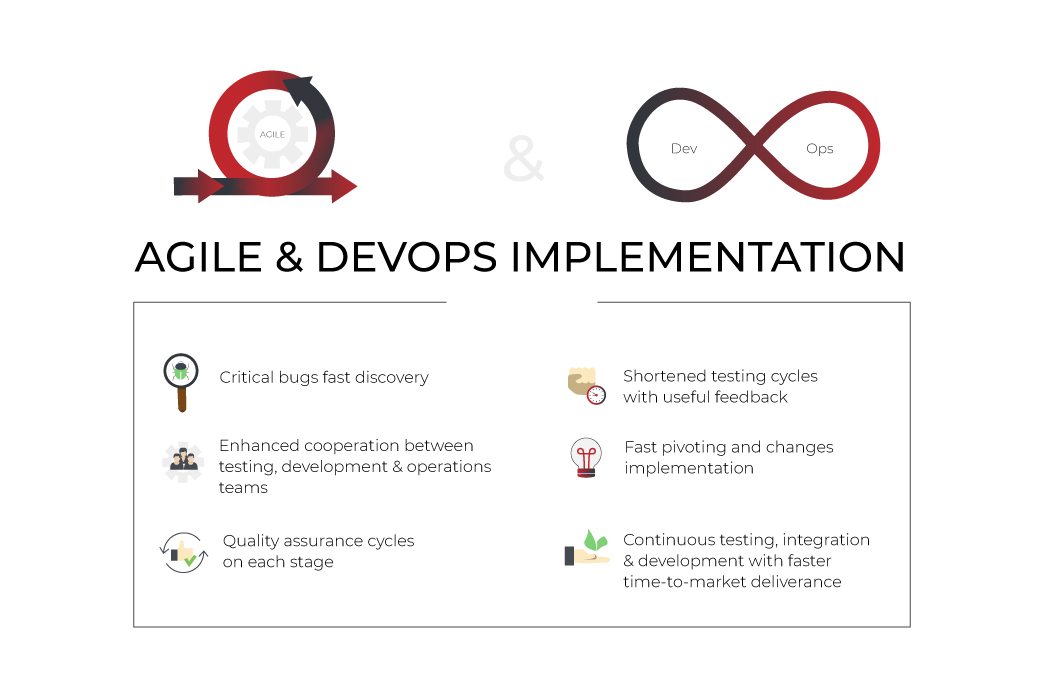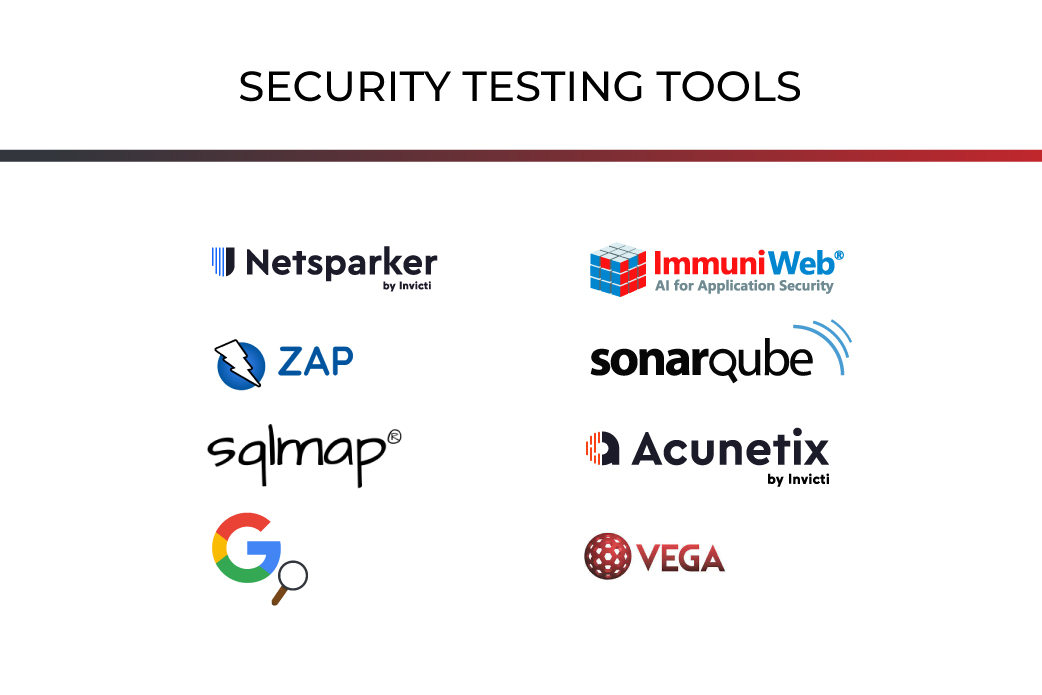Software Testing Trends: Major Challenges Facing the industry

It is difficult to overestimate the importance of Quality Assurance (QA) measures in the modern digital industry. Walking hand in hand with software development from the earliest days of the industry, QA has been an integral part of the successful development cycle. However, in recent years, the importance of software testing has gone beyond simple product performance checks and bug fixing. Modern trends are changing the digital industry and changing QA, turning this process into a universal tool for delivering quality for customers. Let’s see if the future of software testing is bright.
Why software testing importance is on the rise?
Speaking about modern trends, one cannot fail to say that the software itself has become the main factor that adds the importance of quality assurance. The fact is that software is becoming more and more complex day after day. Technological development and the mainstreaming appliance of machine learning, artificial intelligence, deep learning, and big data technologies turn conventional programs into complex tools that need full scale & continuous testing. This is one of the main factors making quality assurance a must.
In addition to the increasing software complexity, the cost of development is also growing. In such a situation, it becomes obvious that putting a poorly tested product on the market will cost much more than several rounds of full-cycle testing. This trend is part of the overall desire of businesses to optimize costs as much as possible. Therefore, companies are increasingly giving preference to the additional expenditures for full-scale quality assurance, instead of paying for the risks associated with a lack of sufficient testing.
Security is another factor driving the growing importance of software testing. The issue of cybersecurity has long gone beyond negotiations in a close circle of system administrators. Today, problems related to cybersecurity are discussed at the highest level. In the context of global digitalization, when most of the usual services go into the digital space, the safety of such tools & services, as well as the proper storage of user data, becomes a key factor. In order to prevent and mitigate possible security risks, the business is increasingly turning to large-scale security testing, checking software for readiness to meet all modern requirements. Again, the costs of such testing are not comparable to the losses incurred by a business in the event of a data leak or massive breaches in the security system.
Finally, the increasing business competition and the pressure on digital companies force product owners to invest more resources in software testing. We want to discuss current trends in software testing in our today’s material, in order to predict the near future of the quality assurance industry.
10 CHALLENGES IN MOBILE APPLICATION TESTING
Automation

Test automation is one of the main software testing market trends. A developers survey from GitHub showed that more than 30% of companies are switching to test automation in one way or another, while 12% have already fully automated all their QA processes. This is not surprising, since, in the face of the challenge of providing continuous delivery and the use of techniques such as Agile and DevOps, it is necessary to provide continuous testing. Automated tests are the core of the continuous testing process. In such a situation, many businesses prefer to look for a test resource on the side, contacting the QA and software testing services company.
Continuous testing is a process that allows testers to quickly respond to any new risks and make changes and bug fixes before these risks harm the product and the customer. This allows testing professionals to release tests consistently at every stage of the development cycle.
TOP BENEFITS OF AUTOMATION TESTING
However, for all the usefulness of continuous automated tests, it is too early to write off manual testing. The unique manual combinations created by the software testing engineer allow testing the product in non-standard situations. To achieve maximum results, companies should combine manual and automated tests, with a greater preference for the latter.
Internet of Things (IoT)

Internet of Things is one of the trends that affect all components of the digital industry. The growing number and complexity of connected products and devices make it increasingly important to properly test all of these products and the connections between them. The process of IoT testing can simultaneously include several types of testing at once, from security to performance and unit testing. This is due to the fact that many products can have different operating systems and protocols, while all this functionality should work as a single organism.
So far, it cannot be said with certainty that organizations everywhere are introducing new testing mechanisms in the IoT industry. Nevertheless, this trend will definitely gain momentum in the coming years, and therefore it is not difficult to predict the growing need for software testing services of that kind.
Another thing that is associated with the growth of the IoT industry is the growing need for Big Data Testing. The presence of a large number of devices and systems leads to the appearance of a large amount of data of all shapes. In such a situation, Big Data Testing helps companies better process these volumes of data and make data-driven decisions. In addition, you shouldn’t forget that Big Data is the main source of information for marketing campaigns.
Agile & DevOps implementation

Being an integral part of the development process, software testing must be included in all methodologies that are used by modern businesses in the process of digital transformation. First of all, we are talking about Agile and DevOps approaches, which are gaining momentum and requires continuous delivery of services and software, with continuous testing as a key component. To ensure such compliance, a large number of automated testing tools are used, which in turn determines the first trend, which we talked about above.
The very essence of
DevOps implementation is to combine the best of development, operations, and testing to achieve maximum value and ROI. On the testing side, the QAOps approach is gaining more and more popularity, since it improves the interaction between software engineers and the development side to continuously deliver tests in continuous integration and continuous development pipeline.
Security testing

Security aim is not an innovation in software testing matter. With the rapidly developing software, as it becomes faster and more complex, digital businesses have to deal with an ever-increasing amount of data, and therefore, with their correct storage and protection. As we mentioned at the beginning of the article, the gaps in cybersecurity have long gone beyond the narrow circle of tech companies and today it is a topic that rises at the highest level. In such a situation, the trend towards strengthening security testing measures is absolutely obvious. Some studies show that there is a direct correlation between how early security testing is applied and how much the company will suffer in the future. Security risk mitigation is a process that should be applied from the earliest stages of development.
DATABASE SECURITY BEST PRACTICES
Various studies show that more than 80 percent of companies admit that the attitude of their customers towards security directly influences the way decisions are made within the company. This is an absolutely obvious trend since early security test cycles allow a business to see weaknesses in the security system before competitors or scammers do it. In addition, preparing for possible downfalls helps to reduce the expected losses from such misfortune. Finally, constant penetration testing allows businesses to identify places most attractive for cyberattacks and increases the prestige of the enterprise in the eyes of all stakeholders.
Blockchain

One of the upcoming technologies in software testing industry. The rise in popularity of cryptocurrencies is not news, as over the past couple of years it has become truly global in scale, with the constant support of these payment methods from opinion leaders like Elon Musk or Richard Branson. However, if the very existence of cryptocurrencies as an alternative payment method is still a matter of concern among businesses, then blockchain technology that allows cryptocurrencies to exist is undoubtedly a promising avenue. Financial services companies (and others) are concerned about secure data storage, and in such a situation, blockchain-powered solutions are one of the popular choices.
The growing popularity of blockchain is supported by research figures. Thus, global spending on the development of blockchain technologies and solutions will grow to $11.7 billion in 2022. Nevertheless, the implementation of blockchain solutions is a rather expensive process, since decentralized data storage is not a cheap pleasure. In the process of entering and storing data in the blockchain, there are a huge number of different complex processes such as encryption, decryption, cryptography, and distribution to nodes. In such a situation, the cost of a mistake increases several times, making proper testing of all these processes at the earliest stages one of the latest trends in software testing.
Exploratory Testing

From the above, we can conclude that total automation, the introduction of high technologies, and an emphasis on protection are the main trends that will prevail in the future of software testing. Nevertheless, the beauty and danger of such work stem from the fact that there is always a risk of facing an unexpected, undocumented and unique scenario that your security system cannot cope with. In order to reduce the risks of losses from such situations, Exploratory testing is used.
At its core, this process looks like this: testers create non-scripted and unspecific processes and situations and run them through software, instead of using scripted tests. This really allows QA specialists to better prepare the application for unexpected scenarios. Although for the proper Exploratory testing you need a specialist who is well versed in particular software and can use it as an advanced user, subjecting it to various non-scripted tests.
The future is bright?
Definitely. Long gone are the days when the value of a product was enough to attract customers. Today, the market is so competitive that users are moving value down the priority list, focusing more on usability and safety. Therefore, proper testing of the product before it is released to the market is a must.
Summarizing the above, we can say with confidence that we still do not fully understand the potential that software testing has. Total automation due to the need to comply with DevOps and Agile methods, as well as an emphasis on security, are obvious directions for software testing evolution in the near future. Nevertheless, as in the case of blockchain and Exploratory testing, new technologies and the constant need for a non-standard manual approach to testing make us think that we will see some new trends in software testing in the future.
FAQ
The future of software testing is inextricably linked with the software development industry. With software becoming more complex and collecting more data, testing is becoming more and more important. In the near future, we will clearly see the growing role of testing in the development cycle and a strong emphasis on security testing to improve the quality of the security system.
As for technological trends, the software testing industry is increasingly using such high technologies as AI, ML, and Big Data. The need to automate test scripts is driving the growing use of Deep Learning and AI technologies that allow you to create intelligent scripts that will have ways to learn and quickly work with large amounts of data.
Of course. Despite the obvious trend towards total automation of test scripts using high technologies, manual testing is still in demand. The truth is that most of the tasks in software testing are really easy to automate. Nevertheless, manual work in this type of tests, such as Exploratory testing, is still an effective way to test software in non-standard and non-scripted situations that are unique. That is why the best testing will look like a kind of compromise between manual and automated testing.
Build your ideal
software today


